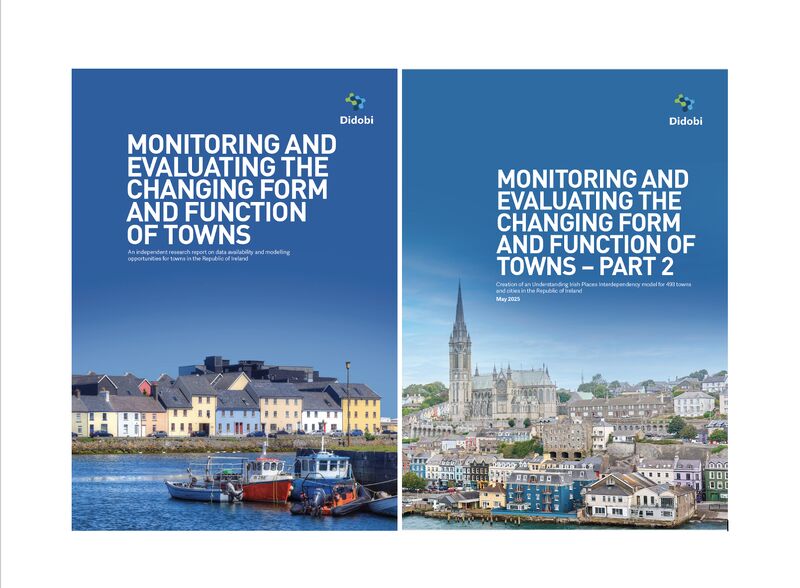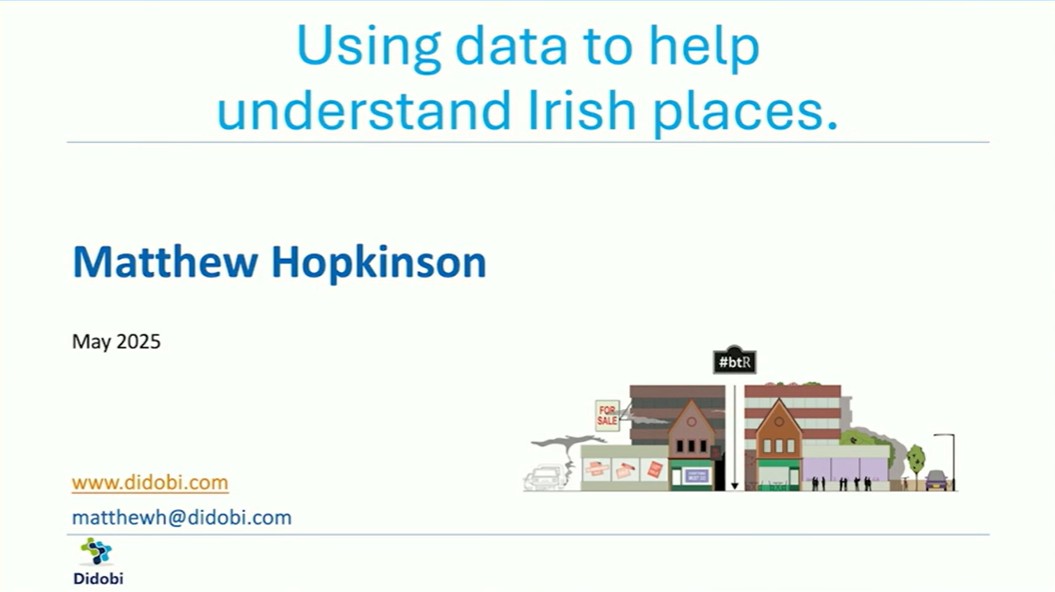
Covid-19, real estate and data – crisis and opportunity
In this blog by Alan Dalgleish, our ‘Didobian in Asia’, he looks at the challenges and most importantly the opportunities that the current Covid19 pandemic will create for real estate investors and owners.
It is something of an understatement to say that 2020 has been an extraordinary year for the real estate industry by any measure, at times offering up a dismal slurry of deeply unpleasant challenges.

But it was Winston Churchill who famously said: ‘Never let a good crisis go to waste’ and experienced real estate market participants will know that a crisis can mean dislocation which in turn can create opportunity.
I recently participated in the REALX Global conference so had an opportunity to discuss both the challenges and the opportunities in the current market, both in the UK and Asia. One aspect of the discussion really struck me as significant – the positive impact of good data and analytics, irrespective of the market one inhabits.
One conference speaker provided data to support some interesting macro observations. He saw significant impact from several things: Covid-19 related quantitative easing, in the form of
- a tsunami of central bank liquidity
- low policy rates extending out to 2023 and beyond
- only 6% of the global bond universe yields 3% or higher (and 22% is in negative territory).
His remarks on QE made me reflect on the impact of QE, post Global Financial Crisis, which is still fresh in the minds of many. An enormous amount of liquidity found its way into real estate markets post crisis. In my view, the impact of this was to puff up prices in many residential real estate markets to levels way beyond sustainable levels. On the commercial side of things, the majority of investors and fund managers remain well-capitalised after several years of successful capital raising and dry powder abounds. By late 2019, property yields in most major markets were looking remarkably undifferentiated and low, given the sheer amount of liquidity sloshing around markets. Might more fuel now be added to a (still) low interest rate environment and with fixed-income returns looking relatively unattractive?

Despite these seemingly positive underpinnings, the current backdrop of fragile sentiment and sharply lower transaction volumes, shows clearly that there has been an ‘interruption’ in market activity thus far in 2020. This has created distress and pain for many, that’s certain – who would favour the Food & Beverage or hotel industry currently? In the UK, there is fire-fighting taking place to restructure leases in the retail sector but for now banks seem to be taking, in most cases, a sympathetic view to enforcing covenants, albeit that they are charging for relief.
Meanwhile, demand for data centres and logistics properties is buoyant and deals are taking place globally. This illustrates the point that institutional investors seem likely to quickly return to selective global investing, continuing to look for diversified returns, albeit possibly with more active risk management. Also, the nature of transactions may focus more long-standing commitments, in other words on deals which are ‘extension of a partnership’ rather than brand new strategies.
The importance of data in terms of an enhanced risk management strategy cannot be emphasized enough. It will be key to possess analytics which help quantify credit risk as part of a lease restructuring, or acquisition-related due diligence or simply for on-going portfolio management: protecting the income component of total return will be vital.
Studies have shown that lack of transparency and poor market data is the greatest impediment to investing in real estate. This is certainly the case in many of the Asian markets, so it is no surprise to note that many in-bound investors to the Asia Pacific region tend to focus on the larger, more transparent markets such as Australia and Japan. Core assets in better-governed market look like good defensive plays in the current market.

Some of our clients are developing very interesting new data and analytical tools to facilitate commercial real estate investment and asset management: AI-driven aggregated data on the property market in China; sophisticated income analytics; econometric forecasting; and robot technology for disinfection of public transport and common areas of buildings.
The underlying fundamentals in many economies and markets will support a rebound in due course and when it comes new tools will be available to help investors navigate the opportunities. After all, as singer Howard Jones said: ‘things can only get better’.
Get in touch and challenge us with the questions you need answering and let us help you get your data working for you to drive better and faster decisions on your commercial real estate.






Leave a comment: